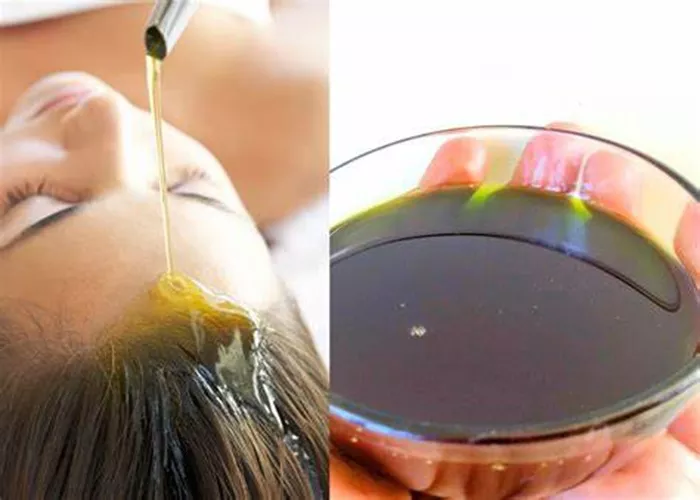Hair fall is a common concern affecting millions of people worldwide. While there are numerous treatments available, natural oils have been used for centuries to strengthen hair, reduce breakage, and promote healthy growth. The right oil can nourish the scalp, improve blood circulation, and provide essential nutrients to hair follicles. However, with so many options available, it can be challenging to determine which oil is best for combating hair fall.
In this comprehensive guide, we will explore the most effective oils for hair fall, their benefits, and how to use them for optimal results.
Understanding the Causes of Hair Fall
Before diving into the best oils for hair fall, it’s essential to understand why hair loss occurs. Several factors contribute to excessive shedding, including:
- Nutritional Deficiencies: Lack of essential vitamins and minerals like iron, zinc, biotin, and vitamin D can weaken hair.
- Hormonal Imbalances: Conditions like thyroid disorders, PCOS, and menopause can trigger hair loss.
- Scalp Conditions: Dandruff, psoriasis, and fungal infections can damage hair follicles.
- Stress and Lifestyle: Chronic stress, poor sleep, and unhealthy diets accelerate hair fall.
- Chemical Damage: Excessive use of heat styling tools, harsh shampoos, and chemical treatments can weaken hair strands.
Addressing the root cause is crucial, but incorporating the right hair oil can significantly improve hair health and reduce breakage.
The 6 Best Oils for Hair Fall and Their Benefits
Coconut Oil
Coconut oil is one of the most popular oils for hair care, and for good reason. It is rich in lauric acid, which has a high affinity for hair proteins, allowing it to penetrate deep into the hair shaft and prevent protein loss.
Benefits:
- Strengthens hair and reduces breakage
- Prevents scalp infections due to its antimicrobial properties
- Conditions hair and adds shine
- Reduces frizz and split ends
How to Use: Warm a few tablespoons of coconut oil and massage it into the scalp. Leave it on for at least 30 minutes or overnight before washing it off with a mild shampoo.
Castor Oil
Castor oil is a thick, viscous oil known for its hair growth-promoting properties. It contains ricinoleic acid, which improves blood circulation to the scalp and stimulates hair follicles.
Benefits:
- Promotes hair growth by increasing follicle activity
- Conditions and thickens hair strands
- Reduces scalp inflammation and dandruff
How to Use: Mix castor oil with a lighter oil (like coconut or almond oil) to dilute its thickness. Apply to the scalp and hair, leave for a few hours, then rinse thoroughly.
Rosemary Oil
Rosemary oil is a powerful essential oil that has been shown to be as effective as minoxidil (a common hair growth treatment) in some studies. It enhances circulation and stimulates hair follicles.
Benefits:
- Encourages new hair growth
- Strengthens hair roots
- Reduces scalp irritation and dandruff
How to Use: Mix a few drops of rosemary oil with a carrier oil (like jojoba or coconut oil) and massage into the scalp. Leave for 30 minutes before washing.
Argan Oil
Often called “liquid gold,” argan oil is packed with antioxidants, vitamin E, and fatty acids that nourish the scalp and hair.
Benefits:
- Repairs damaged hair
- Adds moisture and shine
- Protects hair from heat and environmental damage
How to Use: Apply a few drops to damp or dry hair, focusing on the ends. Can also be used as a pre-wash treatment.
Almond Oil
Almond oil is rich in vitamin E, magnesium, and omega fatty acids, making it excellent for hair fall control.
Benefits:
- Strengthens hair follicles
- Reduces scalp inflammation
- Adds softness and shine
How to Use: Warm almond oil and massage into the scalp. Leave for an hour before shampooing.
Onion Oil
While it may have a strong smell, onion oil is highly effective for hair regrowth due to its sulfur content, which boosts collagen production.
Benefits:
- Stimulates hair growth
- Reduces thinning and breakage
- Improves scalp health
How to Use: Apply onion oil to the scalp, leave for 30-45 minutes, then wash with a mild shampoo to remove the odor.
How to Choose the Right Oil for Your Hair Type
Not all oils work the same for every hair type. Here’s a quick guide:
- Dry Hair: Coconut oil, argan oil, olive oil
- Oily Hair: Jojoba oil, grapeseed oil (lightweight, non-greasy)
- Thin/Fine Hair: Almond oil, rosemary oil (lightweight, promotes thickness)
- Thick/Curly Hair: Castor oil, shea butter (deep conditioning)
- Dandruff-Prone Scalp: Tea tree oil, neem oil (antifungal properties)
Additional Tips to Maximize the Benefits of Hair Oils
- Regular Massage: Improves blood circulation and enhances oil absorption.
- Consistency: Use oils at least 2-3 times a week for best results.
- Avoid Overwashing: Stripping natural oils can worsen hair fall.
- Combine with a Healthy Diet: Eat protein-rich foods, vitamins, and stay hydrated.
- Protect from Heat & Pollution: Cover hair or use protective serums.
Conclusion
Choosing the best oil for hair fall depends on your hair type, scalp condition, and specific concerns. While coconut oil and castor oil are universally beneficial, essential oils like rosemary and onion oil can provide targeted solutions for hair growth. Consistency and proper application are key to seeing noticeable improvements.
If hair fall persists despite using natural oils, consult a dermatologist to rule out underlying medical conditions. With the right care, you can restore your hair’s strength and vitality naturally.
Related Topics:
- What Should We Eat to Avoid Hair Fall?
- Can We Stop Hereditary Hair Loss? A Detailed Guide
- Why Is My Hair Turning Grey and Falling Out? A…


